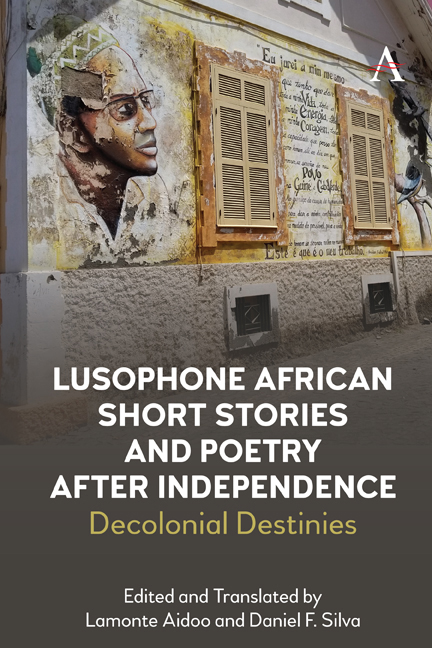Chapter 9 - Orlanda Amarilis
Published online by Cambridge University Press: 23 February 2022
Summary
Introduction
Best known as Orlanda Amarilis, Orlanda Amarilis Lopes Rodrigues Fernandes Ferreira was born on October 8, 1924, in the city of Assomada on the Cape Verdean island of Santiago. Long before her death in February of 2014, she was already considered one of the most important figures in the history of Cape Verdean literature, with her works celebrated in critical spheres as a trailblazing literary voice for feminist epistemologies in Lusophone African literatures. She hails from a family of influential Cape Verdean writers and intellectuals tied to the Claridade literary movement of the 1930s–1960, and its legacies still felt today in the national public sphere. She is the daughter of Armando Napoleão Rodrigues Fernandes and is also related to Baltazar Lopes da Silva. Both of whom had composed and published the first dictionary of Cape Verdean Creole in Cabo Verde.
Amarilis completed elementary and high school in the city of Mindelo, São Vicente island before moving to Goa, then Portuguese India, with her Portuguese-Cape Verdean husband, writer Manuel Ferreira. During the 1940s through the 1960s, she frequented Portuguese literary circles and published her early works through both Portuguese and Cape Verdean publication channels. For instance, during this time, she was a regular contributor to the Cape Verdean literary review, Certeza (Certainty), in addition to the Portuguese literary magazines such as Colóquio/ Letras (Colloquium/ Letters). Though her short stories have been published in numerous anthologies over the years, she is best known and most acclaimed for her three collections in book form, published from 1974 to 1989. Later, she went on to publish three children's books.
The story below comes from her first book of short stories, Cais-do-Sodré té Salamansa (Cais-do-Sodré to Salamansa, 1974). The title evokes her migratory trajectories between Cabo Verde and Portugal, especially her return to Cabo Verde after spending years in Portugal, and especially the experiences of many Cape Verdean immigrants in Portugal; Cais-do-Sodré being the name of a dock and railway station in Lisbon, and Salamansa the northernmost point of São Vicente island. The Cape Verdean migration prior to independence was concentrated mainly in the New England region of the United States during the nineteenth and twentieth century, propelled by the routes of the transatlantic whaling industry.
- Type
- Chapter
- Information
- Lusophone African Short Stories and Poetry after IndependenceDecolonial Destinies, pp. 121 - 126Publisher: Anthem PressPrint publication year: 2021



